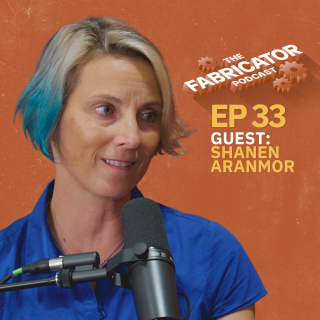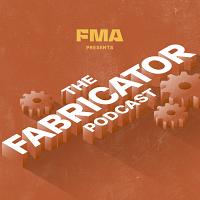Life coach with a welding helmet: Shanen Aranmor of Weld Like A Girl
Shanen Aranmor says she was once described as a life coach under a welding helmet. She's taken that philosophy and run with it, and now identifies herself as Chief Wellness Welder with all the various initiatives she's involved in. In our first episode recorded from FABTECH 2023 in Chicago, Aranmor joins host Dan Davis and co-host Rafael Guerrero to talk about her Yuma, Ariz.-based program Weld Like A Girl, her involvement with SkillsUSA welding competition, being a judge on Project MFG's Clash of the Trades, her affiliation with American Welding Society (AWS), her time working with Miller Electric, and more.
At the top, Fabricators and Manufacturers Association President and CEO Ed Youdell joins the podcast to talk about FMA's rebrand, the unveiling of it FABTECH 2023, and what FMA's new workforce lifecycle means for the metal fabrication industry.
Email us at podcast@fmamfg.org with any comments, questions, or suggestions.
In This Episode
Learn more about FMA's Coil Processing Workshop and Tours
Learn more about Nuts, Bolts & Thingamajigs Awards Gala.
Learn more about Weld Like A Girl and Clash of Trades from Project MFG.
TRANSCRIPT
Shanen Aranmor: I don't know what it is. There's just so much to do. I mean, seriously, Dan, if 51% of the population is right, and we only have one shot on this earth, I want to do it all.
Dan Davis: Yeah. All right.
Shanen Aranmor: I want to try it, and do it, and experience it, and help people.
Dan Davis: I'm here to balance out your energy.
Sara Spring: It is almost time to celebrate manufacturing's finest contributors at the Annual Nuts Bolts and Thingamajigs Awards gala. This fun and exciting evening supports the next generation of manufacturers by raising funds for scholarships and educational programs. Help build tomorrow's skilled workforce by attending, or participating in the online silent auction. Bid on artwork, and other unique items throughout the evening from anywhere. Get all the details at gala.nutsandboltsfoundation.org.
Dan Davis: Hello, Dan Davis from the Fabricator Magazine here at FABTECH 2023. This episode, we'll be speaking with Shanen Aranmor of Weld Like a Girl, and also Project Manufacturing. But before we get into that, I'm joined by Ed Youdell, president of the Fabricators and Manufacturers Association, the parent organization of the Fabricator, and the owner of this podcast, the Fabricator Podcast. So we had big news here at FABTECH this year, a rebranding of the organization, and people will be able to see elements of that in the Fabricator in October. But Ed, would you like to kind of describe some of the thought process behind the rebrand?
Ed Youdell: Absolutely. We're excited about this. The organization's 53 years old, and maybe every 53 years or so, we should try to look at ourselves, and look internally, and what can we do better? How can we serve the market better? How can we help the manufacturing community, and the metal fab industry more? We worked with an agency to do a brand awareness study, to try to learn about ourselves, and what do we do well, what's recognized well. And in the process of that, what we really learned is that our organization was lost in a sea of sameness. So, we'd stepped back and said, "How can we break out from the sea of sameness of other associations?" And that led to us rebranding the organization, redefining our mission around the idea of supporting a workforce lifecycle. What that means is that at every stage of someone's journey through the metal fab industry, we can surround that person with tools, and resources to help them perform their jobs better, be better educated, network, meet people who know the things they want to meet, and make our resources more effective in helping them just be better fabricators.
Dan Davis: Yeah. And so, working to make us stand out, and as a result, helping fabricating kind of stand out.
Ed Youdell: Right.
Dan Davis: We've done some rethinking of the visuals. So we have a new logo, new color scheme.
Ed Youdell: Correct.
Dan Davis: But we also have... We're kind of leading with our foundation, and what we're doing there. Can you kind of touch upon that?
Ed Youdell: So our charitable foundation of Nuts, Bolts and Thingamajigs, its key work is to attract people into manufacturing and the metal fabrication industry. So, with that as the centerpiece of our idea of this workforce lifecycle, all of our products and services then touch, and support that work. So, when someone buys an ad in the Fabricator magazine, what they've generally not understood is, it's not just going into some vacuous pocket. That money is then transferred and supports the work of the foundation. It supports the work of our education programs. So, making the industry aware of everything that they do, and connect with us, and support us, in turn goes back into the industry to help us grow, and supports 239 manufacturing camps in 27 states, where we introduced 3,500 kids to the idea of manufacturing, and working in metal fabrication. And then all the scholarships that we support through this funding. Once we get those people in the industry, then we're there, FMA is there to help them through the next stages of their career.
Dan Davis: And I think one of the exciting things, having visited some of these NBT camps is that, will all those kids end up working in a metal fabricating shop? Probably not. But they have an awareness now, of what maybe goes on in that fabricating shop, and that awareness makes them a little bit more of an ally for those that want to support manufacturing in the US.
Ed Youdell: I can't guarantee that any of those kids will ever work in metal fab. I can guarantee you, though, if we don't do the work we're doing, none of them will. And fighting the perception gap is really... That's the big issue in manufacturing. It's not a skills shortage, it's a perception gap, because we have to compete with all the other crazy new things there are to do. And jobs, and careers, and manufacturing has not done a good enough job standing up, and shouting, and fighting for those, the best and the brightest, because we have wonderful jobs, wonderful careers, great innovative companies. The people in the metal fab industry, the owners, I know, these are the smartest, hardworking, just great, sharp people that build great companies, and we want to be able to compete for the talent, and this is one way we're going to do it.
Dan Davis: Yeah. And for people interested in learning more about FMA, they can check out a new website as well, fmamfg.org. And I would encourage people to maybe consider joining. There's a lot to be learned, a lot of networking to be done from people in all areas of metal fabricating, not just company owners. It's a smaller community in terms of, against the backdrop of manufacturing in the US, but it's a dynamic and vibrant community.
Ed Youdell: Right. Yeah.
Dan Davis: So anything else you'd like to add?
Ed Youdell: We would love to have people come check us out. Consider being a member, a member company of the organization. It's very inexpensive to join the FMA. It's a great value. The opportunities and exposures we offer really stack up, if you'll be proactive enough to get involved.
Dan Davis: Yeah, I think a good entry way to get involved with FMA is probably annual meeting, a nice event.
Ed Youdell: It's a great event. Clearwater Beach, late February. Can't think of a better time to get out of the snowy and cold Midwest, and come down, and meet with your peers, who are very willing and open to talk to you about the same challenges that you're going to find you're having. They may have the solution, or an idea that they're willing to share, and that's great about this community.
Dan Davis: Thank you for joining us, Ed. Now we'll get back to our conversation with Shanen
Sara Spring: FMA's Coil Processing Workshop Heads to Toledo. During this two day workshop, you'll connect with industry colleagues, and gain insight into your toughest processing challenges. The small group setting includes facility tours for you to see equipment in action, and discover new solutions for cutting, splitting, leveling, safety, and more. For more information, and to register online, please visit fmamfg.org. And now, back to the episode.
Dan Davis: Welcome back to the Fabricator podcast, joined by Rafael and Shanen, thanks so much for joining us today.
Shanen Aranmor: Thank you for asking.
Dan Davis: Yeah, and Shanen is with... Aranmor, Shanen, Aranmor, I should get that out, she's with Weld Like a Girl, and also Project Manufacturing.
Shanen Aranmor: Project MFG.
Dan Davis: Am I forgetting anything else that you'd like to mention?
Shanen Aranmor: I do a lot of things.
Dan Davis: Yes. She's heavily involved in both-
Shanen Aranmor: Skills USA and American Welding Society.
Dan Davis: Yeah, a lot of welding related stuff, but also kind of a little bit more than that as well. We will get into that a little bit, but for our listeners, and those who happen to be watching on YouTube and other video formats, can you tell our audience about yourself?
Shanen Aranmor: Sure. So I'm the founder of World Like a girl. I was the Miller trainer for the West for six years, and when I left Miller, I started Weld Like a Girl. Initially it was intended to be a girls and women's empowerment project using welding fabrication and sculpture. I soon learned that boys and men want to learn, too. So, we're co-ed, we offer classes to the public. So far I have taught as old as five-years-old, and as young as 88.
Dan Davis: Wow. Okay.
Shanen Aranmor: I also work with some charter high schools. So, students maybe who are at risk, or special needs tend to go to charter high schools, or maybe they just want a smaller size classroom for learning. But usually these are students who are maybe more tuned into hands-on learning. And so I work with them in the mornings as well. And I do some side projects, Skills USA, I'm the national tech chair for welding sculpture, and I run some state contests, Arizona and California. And then I get to be the lead CWI for Project MFG. It's so exciting. It's funded by the Department of Defense.
Dan Davis: Okay.
Shanen Aranmor: And what they're really trying to do is elevate the trades, and put real money into contests that are attracting students to the trades, but also to link those students who are participating with actual employers, so that we're not just awarding you for your great performance, but we're also saying, "Here are the people that are hiring," and they have career events where the students get to meet the employers.
Dan Davis: Awesome. And I know Rafael crossed paths with you at the US Skills-
Rafael Guerrero: Skills USA.
Shanen Aranmor: Yeah, Skills USA.
Dan Davis: USA Skills. Skills USA competition. And Rafael, you actually interviewed Shanen for upcoming issue of The Welder
Rafael Guerrero: Yeah.
Dan Davis: September, October.
Rafael Guerrero: That's correct. Yeah, I have met her actually two skills USAs ago.
Dan Davis: Okay.
Rafael Guerrero: And then we spoke again this year, and I went a bit more in depth with her on this one. So, I guess for people who don't know too much about Skills USA, could you describe that to people who are listening, or watching right now?
Shanen Aranmor: Certainly, yes. So Skills USA is an organization that has high school students competing against high school students, college and vocational students competing against their peer group. And it's more than 110 trades now. I guess we keep expanding every year, but things from plumbing, welding, baking, cosmetology, aesthetics. Really cool one that I like to watch is teamworks. You've got a carpenter, an electrician, and I don't know if it's a plumber, it's super cool, masonry, all kinds of things.
Dan Davis: The baker supplying croissants for the break.
Shanen Aranmor: Well, you're not kidding, actually. Welding used to be across from baking and that was fabulous. Chocolate chip cookies, they would come out, and we're like... You're smelling it all day. But, so that competition starts at your regional level. So, in your state, there's a number of regions, and then if you win at that region, then you advance to the state contest. And if you win at your state, you represent your state in your trade at the national level. And 22 of those trades actually go onto World Skills USA. Welding is one of them.
Dan Davis: Why the kind of involvement in all these organizations?
Shanen Aranmor: I know, right?
Dan Davis: But it's like you're committed, it's obvious, but why the commitment?
Shanen Aranmor: I was asked that recently by a coworker at the community college where I teach a class. He was a little confused. And I said, "We keep talking about this shortage of skilled tradespeople, and I think we really need to put our money where our mouth is."
Dan Davis: Right.
Shanen Aranmor: We need to actually make that commitment, and sometimes that's going to mean a sacrifice. It might be your time or your money or whatever, but you need to actually start fishing in a different pond. What are we doing to recruit welders? "Oh, we're going to colleges and high schools that already have welding programs." How does that help us fill any void? What we need to do is look outside and say, "How do we get to people that haven't even thought about welding yet?"
Dan Davis: Right.
Shanen Aranmor: They don't even know that welding is a career option, or machining, or whatever skilled trade you're talking about. You really need to look at a brand new subset of people. And so, I work with special Olympians, I work with veterans, I work with kinds of people. I've taught all kinds of different people, and I'd like to extend to the manufacturing community, why aren't we looking at the autistic population, for example? What do they love to do? Repetition. They like to see success Immediately. I'm thinking, take some people with autism, train them on a cobot, there you go. That person would be so happy to do the same thing over and over again. Now, you and I might find that mind-numbing to do the same thing every day, but my experience with the autistic population is that that's extremely rewarding to do the same thing over and over again, and see an immediate result.
Dan Davis: Yeah.
Shanen Aranmor: I have a young lady that I've worked with, I asked her to do a weld 200 times approximately. So, every two inches she had to do this particular weld. She did it within, I don't know, 35 minutes. Everyone else would've slacked off. They would've been outside, goofing off, because it's boring. To her, it was not boring, and I'm like, "Okay, that's an area that maybe we need to explore." I also think about, we have all kinds of veterans. We have all kinds of people who are in wheelchairs. We don't look at, manufacturing doesn't look at the disabled population for jobs, because you just think of an able-bodied person. That's what you need. Well, I don't know if you're familiar with TIG welding, but TIG welding is typically done seated.
Dan Davis: Right.
Shanen Aranmor: Why are we just not looking at those things? And so, I guess my commitment is, I really value made in America. I think American manufacturing, while it has definitely been knocked down, we can bring it back up, but we need to accelerate that process. And if we don't hurry up and do something, we're going to lose the game. So, I'm trying to help people think outside the box, how do we start motivating people, and inspiring people, and get them to seek out these skilled trades jobs?
Dan Davis: Yeah. So what got you involved in this movement?
Shanen Aranmor: I used to be a college professor in a completely different area.
Dan Davis: In what?
Shanen Aranmor: Wellness.
Dan Davis: Okay.
Shanen Aranmor: And then I went back to grad school and became a mental health therapist. And so, the job that I did, college professor full-time, and then the job that I did part-time could only be part-time, maximum 20 hours a week, because of the population we were working with. It was sexually abused children and their families.
Dan Davis: Okay.
Shanen Aranmor: So none of other therapists could be, because it's a lot.
Dan Davis: Right. Yeah.
Shanen Aranmor: And the natural step when you're a college professor, if you want to advance, is to become an administrator. And I will politely decline any offer again to be a college administrator. The thing is, when you're trying to work with people in the field of wellness, and mental health, you're trying to get them to a place of... A very dark place into a positive place. When you're a college administrator, everyone who walks in your office is angry. Students are angry at faculty. Faculty are angry at administrators, and administrators are just angry, because they get all the crap that trickles up. So, I didn't find joy in that. And so, I had already been taking blacksmithing for a number of reasons, my own stress management, but I taught a stress management class, and not every student was able to listen, and do deep breathing, and do all the structured relaxation techniques. And so I would always try to find different things that I could recommend to students. And so, in the state of Iowa, I took beginning, intermediate, and advanced boxing, for example, just things that I could relate to students, try to give them some different avenues. So I'd already taken blacksmithing, I don't know how many times, because it was free at the college I was working at, and the blacksmithing instructor said, "This class is going away at the end of the semester, because I'm retiring." And I thought, "Blacksmithing is cool. It's so hot, it's cool." You take a piece of metal and you stick it in a hot forge, you pull it out, it's red hot, you pound the crap out of it, you get all your aggression out, and at the end of the day, or the end of the project, you can hand it to your mom and say, "Mom, I thought of you the whole time I made this." So, you can tangibly get... And productively, get stress out. So, I went to the head of the welding department and I said, "I'm a novice blacksmith. I've been taking the same class over and over again, but I'm a really good teacher. So if you'd like, I could be your placeholder this semester, this next semester." And he said, "I'll take a chance on you, but you have to take a welding class."
Dan Davis: Oh, wow.
Shanen Aranmor: And when he made that, I said, "Okay," made that rule. I joke that I now understand what addiction is. I took that welding class, and I was absolutely just, oh my gosh, I love this so much. The next semester I took two more classes. The next semester I took two more. I just kept taking them and he's like, "When are you going to get this degree?" I was like, "Dude, I don't need this degree." And ironically, he asked me, "Would you be on the Skills USA fabrication team?" And I said, "No, thank you." He said, "Why not?" I said, "I didn't grow up with tools. Fabrication team is a team of three. The three of us would be relying on each other. What if you asked me to do something, use a tool, and I screwed up? Then I would let my team down." And I don't think... I just didn't have the confidence. And so, he asked me again a couple months later, and I said, no. He asked me again a few weeks later, "Would you agree to be the alternate to the alternate?" I said, "That sounds safe. I could do that." The next day I was the alternate, and within two weeks I was on the team. Reluctantly. I did not want to be on the team, but I was, "All right, all right, I'll do it." And we won in our regional, we won at our state, and we went to nationals. So we practiced a lot to go to nationals, and it wasn't always fun. Our team didn't always get along. It was some group dynamics going on that were not always positive. I was the only female, that was part of the issue for them. But when we came back from nationals, even though we didn't stand up on the podium, and we didn't win, I practiced so much, and I got so much experience. When I came back to our program, because I wasn't finished yet with my welding degree, a student said, "Hey Shanen, can you fix this machine?" And I listened, and I went, "Yes, I can." So I went to the advisor and I said, "Yep, I'll get the degree, and I want to work for the number one welding manufacturer in the country." And he said, "Okay, teach for me for a bit, get some experience." I did some fabrication and then I wound up getting a job at Miller Electric.
Dan Davis: Oh, wow.
Rafael Guerrero: Wow.
Shanen Aranmor: Yeah.
Dan Davis: So you had no background.
Shanen Aranmor: Okay. Truthfully, in seventh and eighth grade, seventh grade I took metal shop, and in eighth grade I took metal shop two. I was the only girl who had ever taken it. And at the end of the year, the boys were really angry when I walked across the stage to get the metal shop award.
Dan Davis: Okay.
Shanen Aranmor: But we didn't do any welding.
Dan Davis: All right.
Rafael Guerrero: Wow.
Shanen Aranmor: It was all making a screwdriver, and making a box, and spot welding, and nothing... We never had a helmet on.
Dan Davis: Yeah.
Shanen Aranmor: Yeah.
Rafael Guerrero: Okay. I asked this a number of times too if I have guests, or interview subjects, but what is it that you like most about welding? Just what keeps you going?
Shanen Aranmor: I know. Have you ever welded?
Rafael Guerrero: Yeah.
Shanen Aranmor: Okay. So you'll relate to this. There is something about putting the hood down, especially once you know what you're doing, that's very meditative.
Dan Davis: Yeah, that helps.
Shanen Aranmor: Yes. Well, when you're first doing it, it's not meditative. It's frustrating.
Dan Davis: Right.
Shanen Aranmor: But there's something that's meditative about putting the hood down. But I think the most important thing for me is at the end of the day, you can see the fruits of your labors,
Dan Davis: Right.
Shanen Aranmor: Even if it's a mess. I remember at the beginning of my welding program, looking at these welds like, "Oh man, this is rough." But I kept them. I kept all of my welds except for the first week of stick class. I didn't think about it. I kept them all in this giant Rubbermaid tote. It was huge. I had to put my feet against the wall to push it across the room. And then I was like, "I'm not wasting this, because the ugly parts, and the beautiful parts, that's all part of my journey." And that's also a lot of metal to just throw out. So, years later, my husband, I said, "Do you want to take maybe welding sculpture or something, just to know what I do?" And I wasn't a sculptor at the time at all. My background's in fabrication. So, he decided to take the class, and then the next day he said, "Well, would you take it with me?" I said, "Sure. Now I know what I'm going to do with all of those pieces that I've been saving." So I cut them all on the diagonal, and I made a sculpture, and it lives in our front yard. And when I was building this, a couple of the students in class were like, "Ooh, those are some rough welds." I said, "Yes they are, but you know what? We all have to start somewhere." But at the end of the day, even at the beginning, you've put things together. When you're a college administrator, you're taking papers from this side of your desk, doing a lot of keyboard, and then you're putting the papers to the other side. There wasn't anything really... For me, it wasn't rewarding. I'm sure for other people it is, but for me, I didn't have that tangible, like I just actually accomplished something. And you can also really see your progress. Every single day, you can get better. You can say, "Okay, my welds are either getting more consistent, or straighter," or whatever it is, or you're learning more tools. You just keep adding, I guess. It's really cool.
Dan Davis: Yeah. Were you surprised to find yourself along this path? What would, I don't know, 15 year old Shanen say?
Shanen Aranmor: 15 year old Shannon probably would've been like, "Man, I wish my high school had metal shop classes." I missed it in high school.
Dan Davis: If there was more to offer in your high school, do you think your life would've taken a different path?
Shanen Aranmor: The only metal shop metal work that I could do there was jewelry, and I did that, but I was the first person in my family to go to... Excuse me, college,
Dan Davis: Okay, all right.
Shanen Aranmor: And that was the push.
Dan Davis: Yeah.
Shanen Aranmor: Because that was the time. Everyone's going to college, "You're going to go to college whether you like it or not."
Dan Davis: Your story is kind of like a big capsule of what was happening in general.
Shanen Aranmor: Exactly. And so, without guidance... I think about this all the time, I ask my students, I teach a class or two at the community college and every semester I say, "Raise your hand if you are the first person in your family to go to college." And everyone who did, I said, "How much guidance have you had?" None. My family, they didn't go to college. They didn't know how to advise me. So, I picked a subject I liked, and studied it. Biology. Great. What do you do with a four-year biology degree?
Dan Davis: Right.
Shanen Aranmor: Nobody thought down the road, because we didn't know. We weren't prepared for that. So, I feel like we do a better job with kids now, but I definitely want us to see, what are your options when you look down the road? Now the cool thing is, all of these pieces do tie together, because I've been told when I worked for Miller that I'm like a life coach with a welding helmet.
Dan Davis: Yeah.
Shanen Aranmor: And that's what I do now. My classes are based on empowerment. The students that I work with from the charter high school, they start welding on day one. They start welding, not in a booth, not lines, not beads on plate. They actually work on a project. We've done a bunch of signs for... Some of them are sculpture type things. Some of them are practical, but we do signs for the state park, city parks, the City of Yuma. We've done a whole bunch of different things. My students are finishing up some... Kind of like, imagine a giant cookie cutter of holiday ornaments, and Christmas trees and that kind of stuff. We're doing those. They're going to be wrapped with lights at Christmastime, or excuse me, at the holiday time. They're going to be in the planter boxes on downtown Main Street.
Dan Davis: Oh, cool.
Shanen Aranmor: Those kids made those, and on day one they start building. That way they can start getting that sense of confidence that I got.
Dan Davis: Right. Do you see welding as being like that stepping stone to a future?
Shanen Aranmor: Absolutely. I already know that two of the students that I've worked with in the past, they are on the path. One of them has a full ride to Lincoln Tech in Denver, and one of them has a full ride to Tulsa welding school in Tulsa, and they're both students right now, and they're going to be bike welders. They're going to be making bank, and they saw welding in my shop as an opportunity to explore, and figure out their career path. And we've got several other students coming through that I see them choosing this career. Not a job. It's a career, and that's what we talk about. It's a lifetime set of skills you're never going to lose. You can always build on them. You can change your mind later on, but you at least have something that will support you and your family.
Rafael Guerrero: You mentioned earlier that you have taught as young as I think five. Did you say five?
Shanen Aranmor: Five. As old as five, because they say, "I'm five years old." And you say as young as 88, because you're young at heart.
Rafael Guerrero: Okay. As young as 88. Okay.
Dan Davis: It's like baby Huey with a cigar.
Rafael Guerrero: Are there similarities and differences between teaching someone at that young age, or that old?
Shanen Aranmor: You know, that's funny. I haven't thought about that much, but when I teach plasma cutting, I always use the drag shield, and a drag shield is an accessory that you can put on the tip of the plasma torch. You don't need to use it, but it allows you to touch the metal. So, on the younger end of the spectrum, and the older end of the spectrum, people aren't as coordinated, typically. I mean, I don't want to be insulting to anybody, but typically, that is an accurate thing. So, you use the drag shield, that way if they touch the metal or they don't, nothing bad happens. And you might have to give them a little extra guidance, but that's okay. So for example, last spring in my shop, I had 22 second graders come through. The teacher is a fabulous teacher, and she asked, "Could we come to your shop and do real welding?" I was like, "Heck yes. These are seven and eight year olds. That's awesome. They've never seen welding before in their lives." We live in a $3 billion ag community. We don't have a lot of manufacturing. So they'll see maybe John Deere tractors or New Holland tractors or something, but they won't see welding, and machining, and manufacturing.
Dan Davis: This is in Yuma, Arizona.
Shanen Aranmor: Yes.
Dan Davis: Okay.
Shanen Aranmor: Yeah, so you're welcome this winter, when you're eating anything that's dark green, leafy vegetable, we grow it in our valley, 95% of the dark green leafy vegetables are grown in that valley.
Dan Davis: Wow. That's a good piece of trivia.
Shanen Aranmor: Right? So, the kids will be exposed to ag, but they don't get to see anything in manufacturing. So, about 15 minutes before they got there, the high school students that I'm working with from this charter high school, I said, "Okay, infield change." I look at my watch and I said, "In about 15 minutes, we're going to have 22 second graders in here, so I want the extra extra small gloves, extra, extra, extra small gloves over there. I want the extra small jackets," and I'm kind of giving everyone directions where to put stuff. And they said, "What, Miss? We got kids?" I said, "Yeah, you're going to teach them." "What? Miss? Why didn't you tell us that?" I smiled and I said, "Would you have come to school today?" And they said, "No." And I said, "Well, there." So that spark is, I think, one of the most important things. I got to... That was possibly the best moment I've had so far at Weld Like a Girl, because I was ready, and I was geared up, and I was going to jump in and rescue somebody if I needed to, but I didn't need to. The students, these big, self-identified thugs, that's what they call themselves. These big dudes are working with these little teeny kids, seven years old, and they're teaching them, and they're getting down on their level, and explaining things, and helping them hold stuff, and getting them fitted up for their gear. I just stood back and I watched and I'm like, "This is magic." These kids, some of the charter high school students that I work with don't have opportunities a lot that they hear, "Hey, you're doing a great job." They don't get positive reinforcement often. And so they did a great job. I mean, amazing. I was trying to contain my energy, and I was just so proud of them.
Dan Davis: Yeah.
Shanen Aranmor: But also, the second-graders were so inspired. Their teacher had them write a thank you note, and a lot of the notes were, "Thank you for the sparks. I love welding. I want to come back. I want to be a welder."
Dan Davis: Yeah.
Shanen Aranmor: A couple of the kids were honest and said, "I really like the pinging." Actually, it's Poly pong. I have a poly pong table in my shop too. One or two of them said, "I really like the poly pong best," but most of them were, "I love welding." How funny that they might never have seen welding before, and now we might've just changed the trajectory of how many kids? I don't know.
Dan Davis: It's kind of interesting that it seems to come back to teaching again. Did you have a feeling it would do that?
Shanen Aranmor: I feel like I've never not taught. When I worked for Miller Electric as a trainer, that was my job. Welding process, power sources, inside and outside of the machine, trying to troubleshoot. I love that. But I think part of it is that I'm the older sibling, and so when I would go to school, I would go home and teach my sister what I learned in school that day. So, our mom was a huge proponent of reading. She read to us, and she also had us read, so we were able to read, I mean obviously children's books, but by kindergarten we were reading, and my sister was also writing, because I had been writing,
Dan Davis: Yeah.
Shanen Aranmor: And I remember coming home from school, and teaching my sister multiplication on flashcard, with flashcards. And so, she was a first-grader, and knew some of her multiplication tables. So, she can thank me for how smart she is. She taught herself Gaelic in eighth grade, and-
Dan Davis: Kids and that Gaelic language.
Shanen Aranmor: Yeah, right? I know. And Japanese when she was in her early twenties.
Dan Davis: Wow. What's she up to now?
Shanen Aranmor: She runs a multimillion dollar internet security company.
Dan Davis: No kidding. Wow.
Shanen Aranmor: Yeah, it's called Rockability.
Dan Davis: How many languages does she speak?
Shanen Aranmor: Well, she just moved to Portugal, and so she and her husband learned Portuguese for the last year before moving over there.
Dan Davis: No kidding. Wow. That's kind of [inaudible 00:30:21].
Shanen Aranmor: And she took Spanish in high school. So I mean, she could probably fumble through about four or five of them.
Dan Davis: [inaudible 00:30:24] like a bright family.
Shanen Aranmor: We're just really motivated. I don't know.
Dan Davis: That's cool.
Shanen Aranmor: I don't even run on caffeine. I don't know what it is. It's just, there's just so much to do. I mean, seriously, Dan, if 51% of the population is right, and we only have one shot on this earth, I want to do it all.
Dan Davis: Yeah. All right.
Shanen Aranmor: I want to try it, and do it, and experience it, and help people.
Dan Davis: I'm here to balance out your energy. So what led to Weld Like a Girl?
Shanen Aranmor: So, unfortunately it was a sad event. I had two deaths in my family within 13 months.
Dan Davis: Oh wow, okay.
Shanen Aranmor: And one of them was not a surprise, because he was older, but the other one was a devastating shock to our family, and I think that second death really made me reevaluate my life. For Miller, I was supposed to travel 50%, but I traveled 100%. And that's common. We only had five trainers in North America, so I'm covering Denver, and West, Edmonton, Canada, eh, and south. So I had a huge territory. But I thought, you know what? If I had only been traveling 50%, I would've been home more, and I would've been able to spend more time with them before they passed, and that really... It hit, and I looked at my husband and I said, "I think I'm done." I loved being a Miller trainer. I love being part of A team. They're here at the show, and I am getting big hugs, and I love my Miller family, but I just said, "I don't know how long I have." I mean, I'm planning on 106, my second choice is 96, but I don't really get a vote on that. So, I want to just do as much as I possibly can, and I feel like when you're in a job where you have a set parameter, a set of parameters, you can't always do some of the things that you want to try, and I would always want to stay for an extra day, in say, Ogden, Utah, and run a women's welding workshop, because I've been asked a number of times, but that wasn't in my job description. So, I created my own job description, and turns out, it is in my job description.
Dan Davis: Well, there you go.
Shanen Aranmor: Yeah. So it was a sad thing, but it also really allowed me to do some of the things that I think are important, and explore things. I didn't know about Project MFG, but I wouldn't have been able to do that, had I not had my own business. Then it also turns out that approximately a year later, my mom passed, and so I wouldn't have been able to be there with her for the last three months of her life had I been working for a corporation. I mean, obviously you can take family leave, but there's no one else to take over your job when you're in a role like I was in. So, it worked out oddly better for our family to do that.
Dan Davis: That's good, that's great.
Shanen Aranmor: But yeah, one of the people that passed was my special needs aunt.
Dan Davis: Okay.
Shanen Aranmor: And she was the one that taught me how to play go fish, cheat at Monopoly, and she taught me about compassion.
Dan Davis: Oh wow.
Shanen Aranmor: She was possibly one of the kindest people on the planet. I can't tell you enough of how much love she had for people, and how helpful she was. And about three months after setting up Weld Like a Girl, all the motivational quotes, positivity, decorations, I looked around and said, "Cheryl would be comfortable here, she would feel safe here." And I was like, "Yeah, that's cool." I didn't mean for it to be that way, and we invite special Olympians in all the time. It just works out. The universe has come around, I think.
Dan Davis: Yeah, no, you got to be in tune with it. It's definitely.
Rafael Guerrero: Would you like to expand weld Like a Girl beyond where it is right now? I don't don't know if that's something that you've thought about, or...
Shanen Aranmor: Yeah, so about a year ago we bought a building. So, we grew. We outgrew the space that we were renting for probably about two years ago, two years prior to moving. So, we bought a building, and so we have a lot more space. We doubled the number of booths, getting new equipment, and brand new welding equipment. Applying for different grants to get CNC plasma, and that is partly because of the high school students, but also because I worked with some veterans, and we have a group in town that works with homeless veterans, and trying to home them. What I really want to do is give them a weekend workshop to teach them how to use the CNC plasma, and then now they have an employability skill that they can go to a company and say, "Hey, I can do this." I don't know where that's going to go. I hope that it's going to be really helpful, but that's one of the pieces. Another thing I'd really like to do, as a result of my relationship with Project MFG, I've learned a lot about machining. I am not a machinist, I don't know how to program anything yet, but what I want to do is get a very small unit, and be able to show children in our community how to machine. My dream is to get one of those, I don't know, I think it's a mini, or something, it's a hoss machine, or [inaudible 00:35:26] machine, something like that.
Dan Davis: I think I know what you're talking about. Yeah. It's like a desktop unit, correct?
Shanen Aranmor: Almost. Yeah. Take a bar of soap, cut it in half, and have the kids program their initials, and then they get to take that home with them. The second-graders coming through, they could do a station over here of welding, a station over here. They can look at the CNC plasma, over here they can look at the CNC machine, maybe laser weld. So, I want to have an opportunity for... Not just kids, I mean we also have people that are reevaluating their lives, career changes. Or people who are welders that don't have certain skills. Maybe they want to refresh their skills or maybe they want to learn how to do something that they've never done before. I want to be able to have all of those tools at hand, that I can help teach them.
Dan Davis: Yeah.
Rafael Guerrero: Yeah.
Shanen Aranmor: We've done some really interesting projects too, because we are a fabrication shop, or a working fabrication shop that is a school, sort of, that's how it's turned out. And as a result, I have some interns and some volunteers that have interesting skillsets. So, we live... Because of where we live. We have YPG, Yuma Proving Ground in our area, and so we've gotten some repairs, odd repairs from subcontractors with the government. And so we'll get things to fix that we don't know what they are, and we won't be allowed to know what they are.
Dan Davis: There you go.
Shanen Aranmor: And I've done some inspection, because I'm a welding inspector. I've done some inspection on some things that I can't know what it is, and I said, "Well, I have to have a blueprint." And they're like, "I can't give you that. It's confidential." I said, "Well, I can't tell you if it matches the blueprint if I can't see the blueprint." But yeah, the projects that we've repaired, I've had an opportunity, a couple of my volunteers, one in particular, she's a retired boilermaker, and so she loves when we got some weird project, because she misses welding, but she is retired, and she just wants to do it one or two days a week. But then the students watch her, and they kind of look over her shoulder. They're learning a lot from her, even though she's kind of quiet. She'll talk to them if they ask questions, don't get me wrong, but I think it's awesome to have another mentor for them to be right there. So you never know how inspiring you can be to someone.
Dan Davis: Right. So in a way, your life hasn't changed too much. You're still kind of... You used the term wellness coach.
Shanen Aranmor: Yep.
Dan Davis: It seems like it's almost welding is the avenue that allows you to kind of do what you almost set out to do originally. Is that fair?
Shanen Aranmor: Exactly, yes. My title, my official title that I have given myself is Chief Wellness Welder.
Dan Davis: There you go. If you're writing your own job description, you can give your own title as well.
Shanen Aranmor: You may as well. Exactly. Yeah. In fact, the American Welding Society board meeting this weekend, someone introduced me as... Described Weld Like a Girl as a mental health facility that happens to use welding.
Dan Davis: Okay.
Shanen Aranmor: I was like, "That's kind of true."
Dan Davis: Yeah.
Shanen Aranmor: I mean, we are fabricating things, but there's a reason why you're doing it. If you were to come into my shop on some random Tuesday, I'd be like, "Hey, Dan, these two over here are going to teach you how to do... They're going to teach you how to weld this thing." And we'd gear you up. We'd talk about safety, and then I would have the students show you what you need to do, and I'd be standing there to make sure that they were telling you the right thing.
Dan Davis: Yeah.
Shanen Aranmor: And that their demonstration was appropriate, and everything. But, I really want to have them be empowered enough that they could teach you, walking in off the street, if you didn't know anything about welding, so that you'd be safe, but you'd also feel part of the team,
Dan Davis: Well, you know that the soft skill development is something that a lot of employers are looking for, almost more than the hard skills, because they feel like they can train that.
Shanen Aranmor: Absolutely.
Dan Davis: Just having individuals come in that can just be a good teammate is almost like job quality one they're after.
Shanen Aranmor: Exactly. I think about it, you can teach someone to weld, or you can teach them a skill, but you can't teach them to have heart. You can't teach them to have a personality. You can't teach them... The only thing you can do is be a good role model for them, and hopefully they'll pick it up, if they don't have it already.
Dan Davis: Yeah, and maybe coax it out of them.
Shanen Aranmor: Right, exactly. I like that. Coax it out of them. Yeah. Because some of these kids are like, "No, I don't want to be a team player."
Dan Davis: Well yeah, they've been beaten down, like you were describing.
Shanen Aranmor: Exactly. But I have had a student call me, and he said, "Hey, Miss, that sculpture we did on Avenue A?" I'm thinking, "The one that's 15 feet long, nine and a half feet tall, six and a half feet deep, and filled with 12 tons of rock. I might remember that. Yeah." He goes, "Hey, Miss, I was driving someplace I shouldn't have been, and I passed our sculpture, and I turned around." And I'm like, I go, "Anytime you have thoughts about... Anytime you are faced with a decision that's a hard one like that, and you're about to make a bad choice, I want you to go sit and meditate in front of that sculpture." It's a welcome sign.
Dan Davis: What is it?
Shanen Aranmor: So it's a welcome sign. The students the semester before were asked by our city to come up with some ideas that would be representative of our community. And so we had all different things. We have a balloon festival, we have Mato Midnight et the Oasis. It's a classic car show. There's a water tower that's distinctive to them. And so anyway, we came up with different ideas, and the city chose a mock-up Mato car. So we have parts of all different kind of classic cars represented, and then we have this big water tower, and it says "Welcome," in the middle with the city's crest, but the car is coming out of the mountain range, and so the city put solar lights in the headlights, so it's always... You can see the headlights at night, and they paved, with actual asphalt, and painted it the way it would be on the street, so it looks like it's riding on the road. And that was an amazing endeavor. The students had to figure out how much metal to get, and I said, "Well, we need to be good stewards of the city's money, so we need to order enough, but not excessive. But we also don't want to go to them and say, 'Oh, hey, we need 10 times more.'" So I said, "All right, we're going to do this water tower. It's going to be a five-foot diameter. How much metal do we need to do the rim on the outside?" Blank, blank. They have no idea. "Okay." I said, "Is it two pi R, or pi R squared?" "Miss? You're not going to make us do math, are you?" And I was like, "What do you think fabrication is? We have to know how much material before we can even do this." And so that was a shock to them. I think they're less anxious about math. I'm not going to say they're not anxious about it. And I'm not going to lie, my geometry teacher is rolling over in his grave on a daily basis, because I put my hand on my hip in geometry saying, "I'm never going to use this again." And unfortunately, or fortunately, I use it every single day. But that particular sculpture, we literally had piles of metal, and then we had an unveiling about four months later, three months later, and the students were inside of it. I mean, it was incredible. And it's life changing. It was transformative to them.
Rafael Guerrero: It's great that it gets to be part of the community now.
Shanen Aranmor: Exactly. And it will always be there. It's a permanent installation. That's kind of what I think, you take anybody, and you make something that's bigger than yourself. That's important, making something larger than you. There's a shift in your mindset that happens, and then you have a sense of pride every single time you drive past that. And they can show their kids, and their grandkids, and their families came out to the unveiling. And so, we try to connect with people in the community, the city, or the county, or the state parks, so that we can do permanent installations, because while I do want them to take things home, we have a couple of days where, "It's coming up on Mother's Day, let's blacksmith a rose or something," but I want them to be part of something bigger.
Rafael Guerrero: Since you bring up sculptures, I wanted to ask you about just the sculpture competition at Skills USA, National Skills USA.
Shanen Aranmor: Oh yeah. Oh, you saw them this year?
Rafael Guerrero: Yeah, I did see them.
Shanen Aranmor: They were beautiful.
Rafael Guerrero: Yes, I wanted to get your thoughts on what you saw this year? I believe they were like 50 or so, right?
Shanen Aranmor: There were more than that. Yeah.
Rafael Guerrero: More than that.
Shanen Aranmor: I think this year was a little bit smaller than in some years past, but I think schools are still recovering from budgets after COVID. So, while there was definitely a lot of involvement, because welding sculpture is not one of the 22 that advances to World, it's not always the priority for a lot of states. Welding, individual welding does advance. But as far as what we saw, sometimes, Rafael, it's hard to see the difference between the high school and the college, or the post-secondary, I should say, secondary and post-secondary. Sometimes you don't know which is which, because some of those high school students have spent so much time. I mean, it was really telling. There was that one sculpture that everyone just assumed had been buffed with an actual grinder, and a buffing wheel. That kid hand buffed it himself, and didn't put any clear coat on it. It was just that shiny.
Dan Davis: Wow.
Shanen Aranmor: And so, there's a lot of pride, and workmanship that goes into some of these sculptures. I'm super grateful to Skills USA that now that we're in Atlanta, all three welding contests are next to each other. It used to be when welding sculpture first started, it used to be that they were in the bowels of a building in Kansas City, by the... It's like a mile away. By the time you found it, you were exhausted and hungry, and you didn't want to actually go and look at these sculptures anymore. And each year, each time we've moved, we've had different space. And so they put us closer and closer. But this year we have, or in the last two years in Atlanta, you go down the escalator, and you see welding sculpture, individual welding, and welding fabrication, all right there, which I think is super powerful, because now when people are considering careers, or they're exploring things, you really get to see everything. You get to see building things. You get to see, at the fabrication, you get to see high level, very high skill individual welding, because that is... You're under the hood by yourself, and then you get to see the beautiful side of it. And so, I just feel like it's an incredible opportunity, and I'm just very grateful for the people that have allowed that at Skills, because it hasn't always been that way.
Rafael Guerrero: Yeah.
Shanen Aranmor: The other thing is, all three contests we pull together. So, when they're trying to decide about how much space one of us is going to get, we always make sure to check in with the others. "If I get this space, does that take that away from you?" Ed Norman is the chair of welding, the individual welding contest. He told me this year, he goes, "You know what? Right now, we don't need this space." So he gave me, I think 12 feet, 12 feet by that length. That's a lot.
Dan Davis: Yeah, yeah, yeah.
Shanen Aranmor: And so we really got to change things around, because we introduced live welding this year at our contest, which we've never done. Usually what happens with the welding sculpture contest is that students create this sculpture throughout the school year, approximately January or early February will be the regional contest. That's when they have to stop working on it. The only thing they're allowed to do is clear coat it. They can't put any paint or patina on it, can't add anything to it. After the regional contest. They use the same sculpture for regional, and for state, and for nationals. So when we have interviews, you hear, "We did this, we did this, we did..." And I'm like, "Who's we? The mouse in your pocket?" So there was a lot of question, how much of this was the advisor? How much of this was a parent? And so for years, we've been talking about adding a live welding component just to kind of check in with students. And so this year, we had students draw from a hat, and the welding process, and we're going to do this next year too, they had a welding process that they had to do, and they had to set up the machine, and they had to do just a simple weld, whatever position it was that they drew, but just one weld, and then that weld couldn't be scored because it was a demonstration part of our contest, but next year it will be scored.
Dan Davis: Oh, wow.
Shanen Aranmor: And what they'll do next year, is they'll draw one cutting process, either oxy fuel cutting, or plasma cutting, and then they'll draw one welding process. So it could be SMAW, GTAW, GMAW, or FCAW. So flux, stick, TIG, MIG, and then they're going to have to do one cutting, one welding process, and that will be part of their scoring rubric.
Rafael Guerrero: So who won, actually? Because I saw the names, but I couldn't figure out which sculpture won.
Shanen Aranmor: I know, and every year I ask them to put the photograph of the winning sculptures, and they just... I don't know. I think it's a different group that does the PowerPoint at the end. I think the Turtle, the Turtle, that was that high polish. I think that was second, on the secondary, on the high school. I have the pictures on my phone, I can't remember at the moment, but it was close. I mean, it was within points. And it's a thousand point contest, so you figure if you're within five points, that's a really good contest. The one that won for post-secondary was the Elk on the Rock. It was in sort of the far corner by the walkway. I don't know if you remember that. And then the mechanical one was second. And I'm blanking on... It's been a minute since Skills.
Rafael Guerrero: Yeah.
Dan Davis: Yeah.
Shanen Aranmor: I've done a few things.
Dan Davis: We'll update that story.
Shanen Aranmor: Yes.
Dan Davis: You can find that thefabricator.com.
Shanen Aranmor: There you go.
Dan Davis: Before we go, project manufacturing, that's a pretty high profile endeavor.
Shanen Aranmor: Yes.
Dan Davis: How long have you been involved? And what's your take from it?
Shanen Aranmor: Sure. I am extremely proud of being a part of that team. They're fabulous people. Project MFG, funded by the Department of Defense. So you know the government is looking at the skilled trade shortage very seriously. One of my favorite people, one of my favorite quotes is from Adele Radcliffe, who works, I think at the Pentagon. And she says, "There is more than one way to serve your country. By being a skilled trades person, you are serving your country." And she's an amazing human being, and she's very inspiring. And basically what they're trying to do is revise, and revitalize the American manufacturing movement. I think that not only is it the fact that they offer financial rewards for the competitions, but also they do a program called Clash of Trades. It's on YouTube. And so, it's very reality TV show kind of.
Dan Davis: It's well done.
Shanen Aranmor: Yeah. It's [inaudible 00:49:38].
Dan Davis: It's high end. Yeah, it's high end work.
Shanen Aranmor: The production company won the Webbys last year.
Dan Davis: Okay. All right.
Shanen Aranmor: Yeah. So, they're definitely a group to watch out for. I think that Project MFG is growing. They do additive manufacturing. Each of the different competitions that they do is sort of inspired by whatever part of industry is supporting it. So for example, we go to Philly Shipyard, Newport News, Ingle Shipyard, and we went up to Rhode Island. So, those tend to be Navy ship, or submarine themed. And then there's also the medical field that we were with... Our last contest, the machinists made an artificial hip.
Dan Davis: Okay.
Shanen Aranmor: They made the acetabulum, the ball, and the stock of a hip replacement. And then the welders welded a stainless steel pressure vessel in an autoclave.
Dan Davis: Oh wow.
Shanen Aranmor: Yeah, I mean, so it's real life stuff.
Dan Davis: Yeah, it's high-end stuff.
Shanen Aranmor: And then the additive manufacturing, I'm not a part of that one, but that one sort of screams Department of Defense. They had to create something like a basket, that could pick up an egg, and a drone would be able to pick it up, and carry it somewhere.
Dan Davis: Oh wow.
Shanen Aranmor: Yeah. Yeah. It's-
Dan Davis: What's the Pentagon up to?
Shanen Aranmor: I know, right? But I think it's exciting for students to be involved in that kind of thing. The fact that there's financial benefit adds some teeth to it. But I think the people behind Project MFG just really have their hearts and their brains in the right place. It's an amazing endeavor, and I hope to continue with it.
Dan Davis: That's awesome. New season?
Shanen Aranmor: So each year they have.... They just launched, I think, the National Welding League, they just did a welding contest. So, that's an interesting thing too. They are providing an opportunity for people who aren't part of the regional contest, aren't part of a school, or... You can actually weld a project, a pre-designed project that you get from Project MFG. You score yourself, you ship it to them, they score it, and then they take the top from all of those, and then they have a national contest from there. So you could be from anywhere, which is pretty cool. And then so they'll have welding only contests, and then they have the integrative manufacturing, which is like welding and machining. And then they have additive manufacturing. They've also done some international.
Dan Davis: Okay. Wow.
Shanen Aranmor: Yeah, I know. It's starting to get some attention. I'm excited.
Dan Davis: I was about say, what spare time do you have?
Shanen Aranmor: Well, I haven't been able to do the international yet, but je parle Francais, so I'm more than happy to-
Dan Davis: See? You're just like your sister.
Shanen Aranmor: I'm more than happy to go over.
Dan Davis: How many languages do you know?
Shanen Aranmor: Two, and a little bit of sign language.
Dan Davis: Wow.
Shanen Aranmor: We have a deaf dog. I taught him 29 signs.
Gareth Sleger: What was it like working with Eddie Saunders on that show? I know he's a high energy guy.
Shanen Aranmor: Oh my gosh.
Dan Davis: Eddie's here. Eddie's here.
Shanen Aranmor: Oh my gosh. Is he here? Oh, I have to find him. You should usually be able to hear him before you can see him. He's not a huge person, but he's got this huge personality. Eddie was amazing to work with. He and I had a blast. He would be super high energy, and then I'd be all excited about what he said, and then he would be the same, and the camera crew is laughing the whole time. They're like, "Oh my gosh, this is so much better than some people that we have to work with, because you have to pull things out." I'm like, but you get people that are passionate about what they are doing, and also about the students, and I feel like it's pretty easy to work with people like that.
Dan Davis: Yeah, It's... People, it's contagious.
Shanen Aranmor: It is.
Dan Davis: Yeah.
Shanen Aranmor: And Eddie Saunders is... He's such a lively person, and he is knowledgeable, and he's inspiring.
Dan Davis: Yeah. That's awesome. Well, Rafael, you got anything else, Mr. High Energy Host?
Rafael Guerrero: Yeah, right.
Shanen Aranmor: I was going to say, I feel like it's like the... It kind of increases as it goes over here, and I'm like, you probably had to put me over here to-
Dan Davis: I think two words that will never be used to describe Rafael and my myself.
Rafael Guerrero: Right. Okay.
Dan Davis: There you go.
Shanen Aranmor: High energy.
Rafael Guerrero: Yeah, I guess I do have one more question. You had mentioned about you were looking for money to possibly expand Weld Like a Girl. I'm wondering, just what type of money, what type of grants are there for these types of efforts?
Shanen Aranmor: Well, right now we're looking at trying to get a CNC mill. Well, CNC plasma cutter would be first, because of the project I was talking about with the veterans. But I'm not sure what's all available yet. At the moment, Weld Like a Girl is not a 501(c)(3), but we are starting a Weld Like a Girl foundation, and that will probably help access some of that grant money. But, if you have any ideas, I'm more than happy to do my homework, and I can write grants if I need to. But, we were so fortunate. In 2019 we got the Spark Something Great award from Hypertherm.
Rafael Guerrero: Okay, right.
Shanen Aranmor: So we got a Hypertherm Promax 45 and that was fabulous, and we use it every day, except this week, which is, I'm kind of like Jonesing for my plasma cutter, but we use it all the time. And then we did recently get a grant from Airgas because of the charter high school that we work with. It was a high school grant for $10,000, so that was very helpful. We got a band saw, and a fabrication table out of that, and both of them are going to be used probably, and abused, unfortunately, because of kids. But yeah, I think some of the larger pieces, the CNC machines, even if you get a small one, you're still talking probably $50,000. I don't have that in my back pocket. I don't know if you do?
Dan Davis: [inaudible 00:55:13] Guerrero does.
Shanen Aranmor: But yeah, so we're basically-
Dan Davis: It was in his other shirt.
Shanen Aranmor: Yeah, yeah. I left it at home, like my business cards. But yeah, I think I'm kind of at the beginning stages of trying to figure out where that even is.
Rafael Guerrero: Okay.
Shanen Aranmor: But I think once we have a 501(c)(3), we'll have some more opportunities available to us. But we also know, if you follow us on social media, we thank the people that have helped us along the way, and we tag them all the time. And I mean, 2019 is a long time ago, but we still thank Hypertherm a couple times a quarter, just because I remember like, "Oh my gosh, this would not be possible without you." And don't think that it doesn't get unnoticed, because when you're a small organization, and you're trying to grow, every little bit helps. The reason why we could be in existence is because people in our community said, "We have this scrap metal. Do you want it?" Heck, yeah. I mean, the cost of steel went up 500%.
Rafael Guerrero: Right.
Shanen Aranmor: I wouldn't have been able to stay alive if not for some of the people that literally don't need this anymore. For example, we have a company in our town called Liberty Motorsports. They get all of their ATVs shipped on metal pallets. At that time, when I started, only Honda reused those pallets.
Dan Davis: Really? Wow.
Shanen Aranmor: All the rest of those pallets went into the landfill, or sometimes he can get money at the recycling, but sometimes he couldn't. And so he would save different things for me, and I would go and pick them up in my truck, and it started weighing down my truck. So then about once a year he'll come out, and he'll have his guys come out with a flatbed trailer, and deliver stuff to me.
Dan Davis: Oh, wow.
Shanen Aranmor: We cut it all up, and you wouldn't even believe some of the things we made out of it.
Dan Davis: That's awesome.
Shanen Aranmor: I know, it takes a village, right?
Rafael Guerrero: Right. Yeah. Every a little bit helps.
Shanen Aranmor: Absolutely. Yeah. And they know, I mean, they see what we're doing with the kids.
Rafael Guerrero: Yeah.
Shanen Aranmor: My husband's a retired chief of police, and he's gotten a whole bunch of different welding certifications as a result of being married to me.
Dan Davis: There you go.
Shanen Aranmor: And so, they look at John and I and they say, "We see the way you're trying to positively impact our community." We're a border town. It's a transient population. We have a Marine Corps Air station, 5,000 Marines, so it's always kind of in flux, where we're at. And so we're trying to provide a little bit of stability for kids.
Dan Davis: Yeah, that's awesome. It's awesome. You're making the impact in a lot of different ways.
Shanen Aranmor: I don't know if you're familiar with the starfish theory, but a woman's walking down the beach, and the tide has just come up, and all these starfish are on the sand, and they're going to die. So she picks them up, hucks them in the water, picks another one up, hucks them in the water, and there's an older gentleman there and he says, "You know you're never going to be able to save them all." And she picks up one, and hucks it back in and goes, "Saved that one, didn't I?"
Dan Davis: Then threw one at the guy.
Shanen Aranmor: Well, no, no. Not in that story, at least. I would be better off kicking it at him. I was a soccer player. I can't throw worth a darn.
Dan Davis: That's why you do what you do, and I am littering the internet with this nonsense. Thanks so much for joining us today.
Shanen Aranmor: Thank you so much for asking me to be here.
Dan Davis: Yeah, it was great.
Shanen Aranmor: It was a pleasure.
Dan Davis: I hope you get increased time to do all that you do, and you get a chance to enjoy yourself while you're doing it.
Shanen Aranmor: Well, thank you. Thank you. I love what I'm doing.
Dan Davis: Awesome. Thanks Rafael.
Rafael Guerrero: Yep. Thank you.
Gareth Sleger: Where can we find you on...
Shanen Aranmor: Socials?
Gareth Sleger: Yeah.
Shanen Aranmor: So, Weld Like a Girl, on Instagram, weld_like_a_girl with underscores in between. And I'm not going to lie, I pretty much abandoned Twitter. On Facebook. It's Weld Like a Girl... I think it's Weld Like a Girl US. But I'll show you. I've got a photograph of the business card that I forgot at home.
Gareth Sleger: I know there's a lot of websites, and the social medias to mention with all the projects that you do too, so.
Shanen Aranmor: Right. Project MFG is projectmfg.com. My website is weldlikeagirl.us.
Dan Davis: So this is the part where I forget everything that we represent. So, you can contact us at podcast@fmamfg.org. Is that correct?
Gareth Sleger: Yeah, that sounds right. They changed our email address.
Dan Davis: We have a new email address.
Shanen Aranmor: Oh, wow.
Gareth Sleger: Just changed.
Dan Davis: Yes. And you can find us wherever you get your podcasts. Rate, review, subscribe, and that's about it. So, thank you, and Good Day.
Sara Spring: The Fabricator Podcast is a production of Fabricators and Manufacturers Association, located in Elgin, Illinois. The show is hosted by Dan Davis, and the staff of FMA Communications. The podcast is produced by Gareth Sleger and recorded and edited with the help of Brandon Geier, sales support provided by Andy Philando. Additional production support by Elizabeth Gavin, Dana Wiker, Mary Diamond, Mike Owens, and me Sara Spring. Thank you for listening.
ABOUT THE FABRICATOR PODCAST
The Fabricator Podcast brings you conversations with people in manufacturing who make things out of metal. We speak with manufacturers, metal fabricators, welders, job shop owners, small business entrepreneurs, artists, marketers, educators, and more. Host Dan Davis also goes beyond discussing just manufacturing and the skilled trades, and chats about pop culture, current events, food, music, movies, comedy, and, of course, robots. The Fabricator Podcast is presented by the Fabricators & Manufacturers Association.
Host: Dan Davis
Producer/Editor: Gareth Sleger
Video Producer/Editor: Brandon Geier
Ad writer/spokesperson/social media: Sara Spring
Additional video editing: Dana Wiker
Graphics: Billy Kulpa
Marketing support: Elizabeth Gavin, Mary Diamond
Sales support: Andy Flando, Amy Hudson
Web support: Mike Owens, Jared Carlow
Additional support: Ed Youdell, Maurine Semevolos, Lincoln Brunner, Tim Heston, Rafael Guerrero, Josh Welton, Darla Welton, Amanda Carlson-Hicks, Callie Check, Rick Lehnhardt, Judy Steinbach.
Where to listen to The Fabricator Podcast:
Follow The FABRICATOR:
Where to Listen
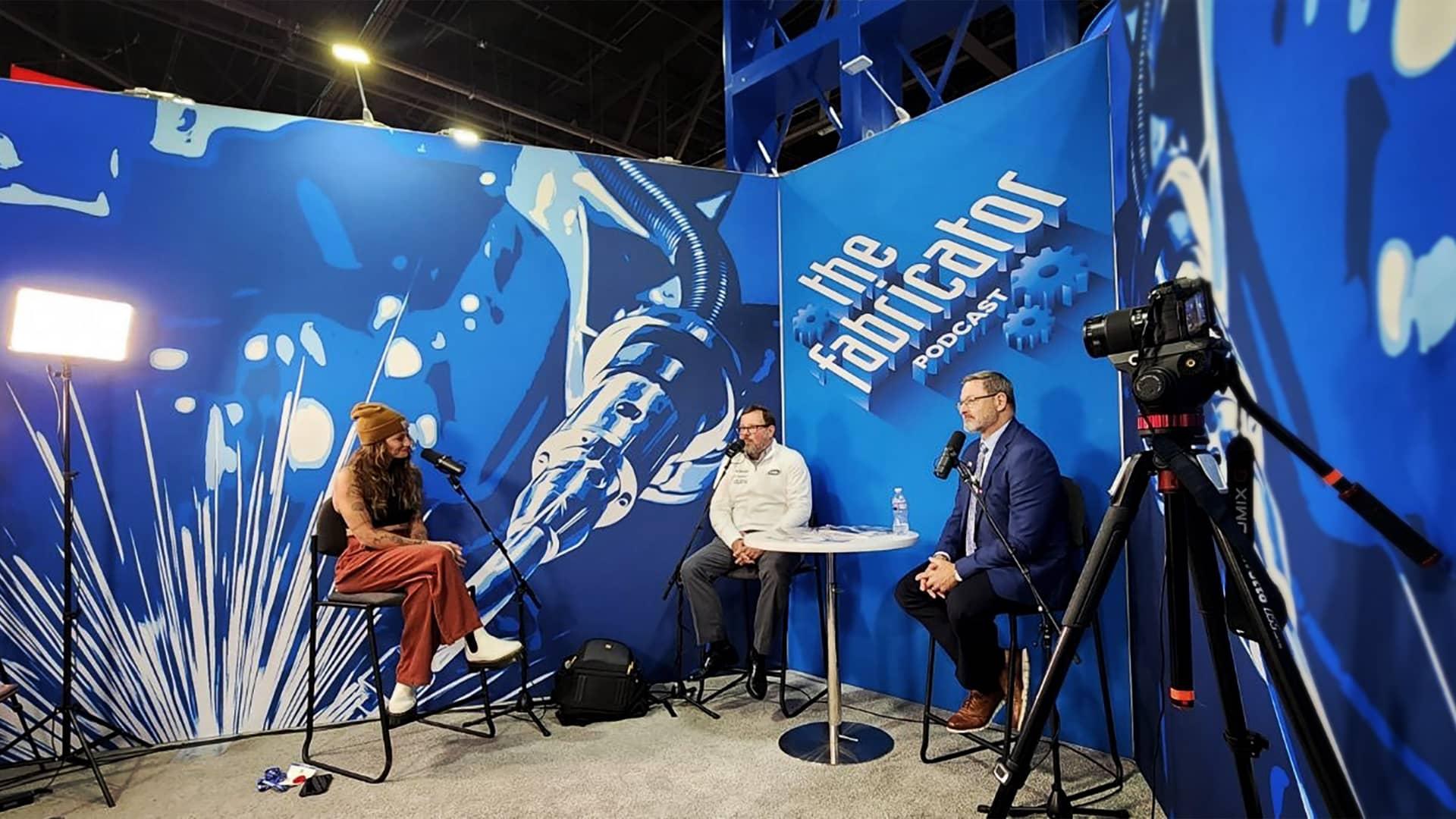
About This Podcast
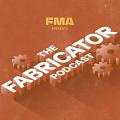
All Episodes
-
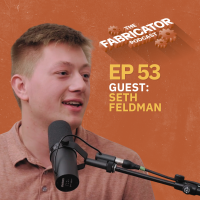 Ep. 053
Ep. 053 -
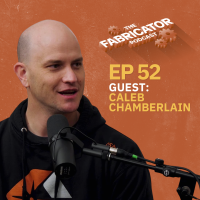 Ep. 052
Ep. 052 -
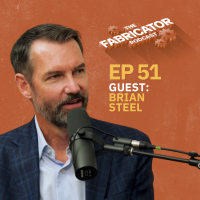 Ep. 051
Ep. 051 -
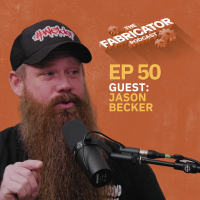 Ep. 050
Ep. 050 -
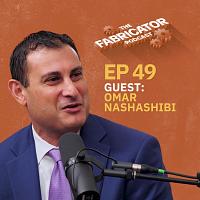 Ep. 049
Ep. 049 -
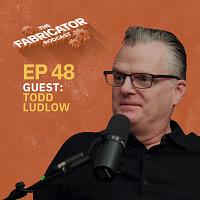 Ep. 048
Ep. 048 -
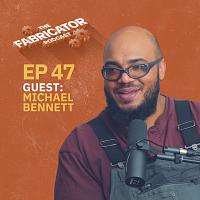 Ep. 047
Ep. 047 -
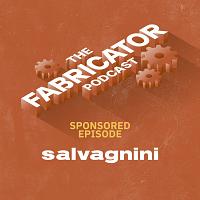 Bonus
Bonus -
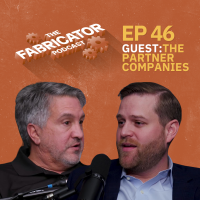 Ep. 046
Ep. 046 -
 Ep. 045
Ep. 045 -
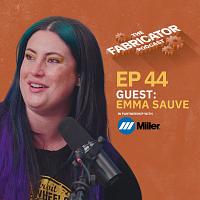 Ep. 044
Ep. 044 -
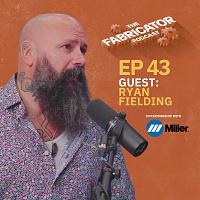 Ep. 043
Ep. 043 -
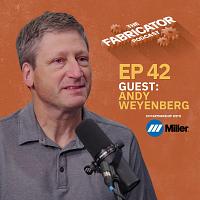 Ep. 042
Ep. 042 -
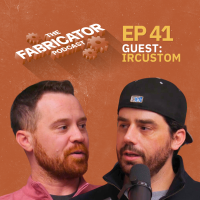 Ep. 041
Ep. 041 -
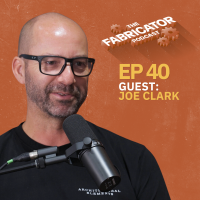 Ep. 040
Ep. 040 -
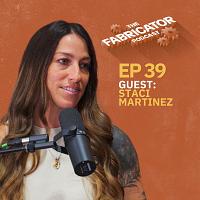 Ep. 039
Ep. 039 -
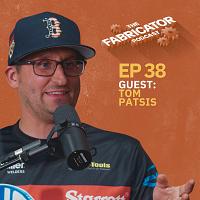 Ep. 038
Ep. 038 -
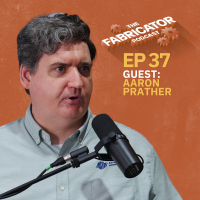 Ep. 037
Ep. 037 -
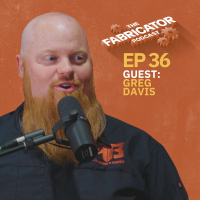 Ep. 036
Ep. 036 -
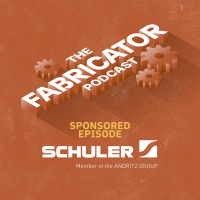 Bonus
Bonus -
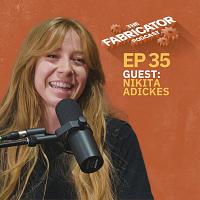 Ep. 035
Ep. 035 -
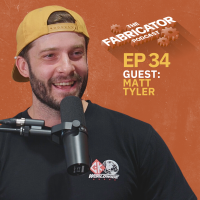 Ep. 034
Ep. 034 -
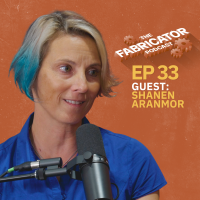 Ep. 033Life coach with a welding helmet: Shanen Aranmor of Weld Like A Girl
Ep. 033Life coach with a welding helmet: Shanen Aranmor of Weld Like A Girl -
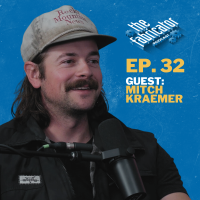 Ep. 032
Ep. 032 -
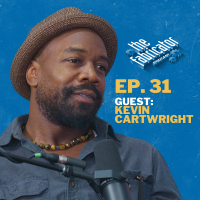 Ep. 031
Ep. 031
























